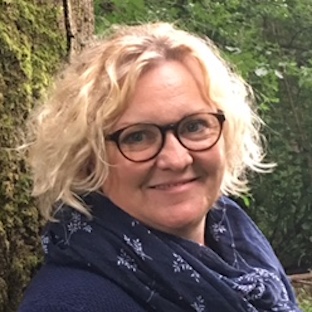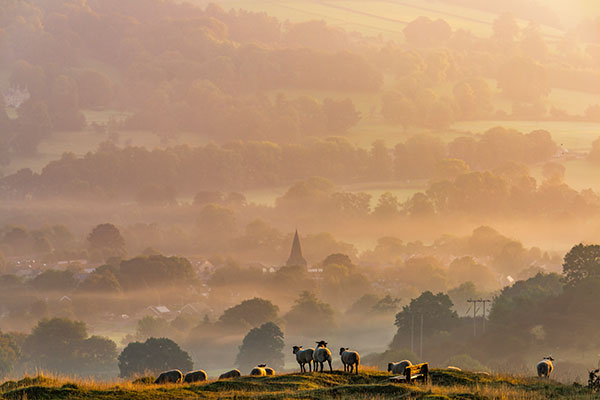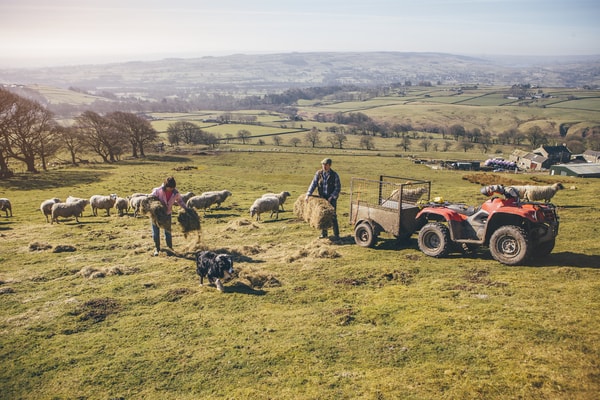Just a month ago, in what seems a different world, the Food, Farming and Countryside Commission held two events at St George’s House, Windsor. Together with fifty others from farming, environment, policy, academia and education, we considered how to structure a new framework for our land use and food and farming systems to respond to the climate, nature and public health emergencies, and all in the post Brexit environment.
Weeks later, we’re facing a crisis which brings all of this into sharp focus. The ways we get food and eat it, our priorities and our attitudes to government intervening in our lives have changed more in the past month than many experts and policy makers had thought possible in decades.
But which of these changes will stick? Which will we remember? And how much will our experience now be overshadowed by the long-term economic impact of the current crisis?
Last week we commissioned some new research with the Food Foundation and YouGov [see inset box]. It shows that, compared with gradual changes in eating behaviour as consumers respond to the climate, nature and obesity crises, we’re now seeing radical lifestyle changes at the drop of a hat. As we are having to spend more time at home, restrict our shopping and stop socialising, we’ve noticed the air is cleaner, there is more wildlife. How we value food is changing, we’re cooking more from scratch and sourcing our food from different places. Three million people have tried a veg box scheme or are buying direct-from-farm both to get what we need and to support the local community.
That we have all had to adapt so fast reflects in part how brittle parts of our food system have become. Farmers and others in food industry are now ‘keyworkers’, but our supply chains leave little wriggle room and most of our farmers rely on very few routes to market. If those fail, they can’t sell their produce, and consumers and producers lose out. The sight of dairy farmers having to throw milk away, whilst some families are struggling to afford enough of the nutritious food they need is, rightly, shocking.
Should we be importing less and growing more food at home, and how should we sell it for a fairer price? Food security at a national level is a strategic priority for government and the UK has the capability to become the world-leader in healthy, sustainable food production. Farmers can be a force for wider economic, public health and environmental benefits. Local supply networks and community groups are making what could be lasting changes with scant infrastructure and resources. What role could they play in the recovery phase and longer term in ensuring rural economies thrive? How do we secure more investment for ecological farming systems, producing healthy food while enhancing the environment, and strengthening communities?
Coronavirus brings a new urgency to these questions. Last July, when Michael Gove, then Environment Secretary, launched our first major report, government was at the early stages of setting out its new farm payments system, ELMs, to re-purpose money from the Common Agricultural Policy to fund environmental benefits. “We know that it is in the interests of farmers and landowners to move to a more sustainable model” he said. Now it’s likely that ELMs and the Agriculture Bill will be delayed until Parliament sits again and Defra has the capacity to think beyond the crisis. There is a new urgency for a vision for food and farming, backed by a plan from government. The crisis is providing the opportunity to reconsider what and how we value the part that farming, and the countryside plays in our lives, and in keeping us well. And more than that, to check – and reset – our compass.
|
The poll finds a majority (85%) want to see some of the personal or social changes they have experienced continue afterwards, whilst just 9% want everything to go back to how it was before the pandemic. It also identifies significant changes to our relationship with food, family and the environment:
- See the data visualization. All figures, unless otherwise stated, are from YouGov Plc. Total sample size was 4343 adults. Fieldwork was undertaken between 7th - 9th April 2020. The survey was carried out online. The figures have been weighted and are representative of all GB adults (aged 18+). Calculations were made by the FFCC using mid-year population estimates. The figures on whether people want things to return (9%) or to change (85%) after the pandemic have been adjusted to include only the respondents (3649) who selected one answer option to this question. |
FFCC is collecting and documenting all the ways in which people are responding across the UK – to show how the food and farming sectors adapt and the effect the pandemic is having on rural communities. If you have a story to tell please share it with us on https://roadtorenewal.co.uk/
Related articles
-
Counting on recovery: collecting the data to inform policy post-crisis
Tom MacMillan
We’re starting to gather evidence on community responses to the pandemic, to help shape post-crisis policy. If you are too, let’s team up.
-
The Future is Here
Sue Pritchard
In a rapidly changing world, we need a stubborn optimism for the future.
-
The UK needs a land use framework
Sue Pritchard
Climate change is here; and we must all take it seriously. A land use framework would be the start of a plan commensurate with the scale of the task ahead.




Be the first to write a comment
Comments
Please login to post a comment or reply
Don't have an account? Click here to register.